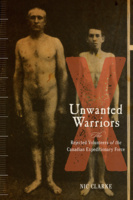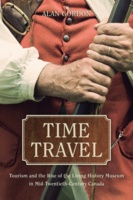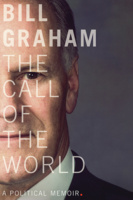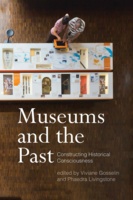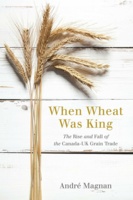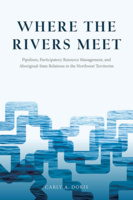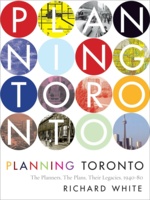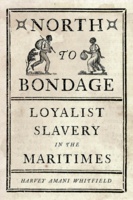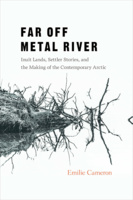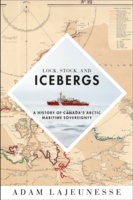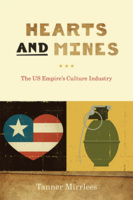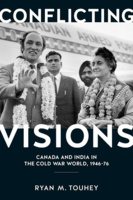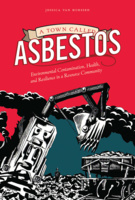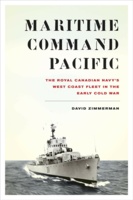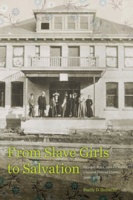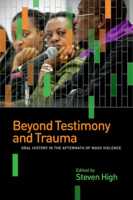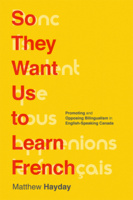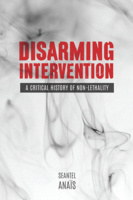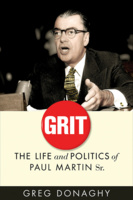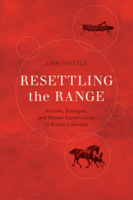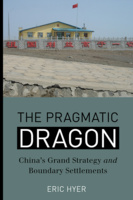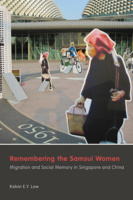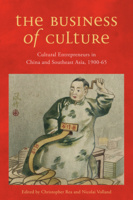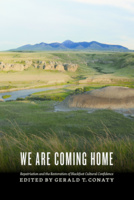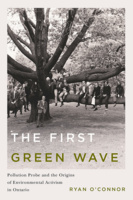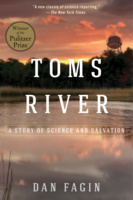The Secular Northwest
Religion and Irreligion in Everyday Postwar Life
This pioneering look at secularism in the postwar Pacific Northwest looks at how the region’s non-religious inhabitants consciously rejected the trappings of organized religion and set out on their own spiritual – or non-spiritual – paths.
Unwanted Warriors
Rejected Volunteers of the Canadian Expeditionary Force
This book uncovers the history of Canada’s first casualties of the Great War – men who tried to enlist, were deemed “unfit for service,” and then lived with shame, guilt, and ostracism.
Time Travel
Tourism and the Rise of the Living History Museum in Mid-Twentieth-Century Canada
This fascinating look at Canada’s living history museums – pioneer villages and old forts where actors recreate the past – shows how they reveal as much about Canadian post-war interests as they do about settler history.
Settler Anxiety at the Outposts of Empire
Colonial Relations, Humanitarian Discourses, and the Imperial Press
A fascinating look at how humanitarian language was used by the colonial press in New Zealand and on Vancouver Island to justify ongoing settler expansion while allaying fears of Indigenous resistance.
The Call of the World
A Political Memoir
In this fiercely intelligent memoir, Bill Graham – Canada’s minister of foreign affairs and minister of defence during the tumultuous years following 9/11 – takes us on a personal journey through a period of upheaval in global and domestic politics, arguing that global institutions based on international law offer the best hope for a safer, more prosperous, and just world.
Fragile Settlements
Aboriginal Peoples, Law, and Resistance in South-West Australia and Prairie Canada
Fragile Settlements compares the historical processes through which British colonial authority was asserted over Indigenous people in southwest Australia and prairie Canada from the 1830s to the early twentieth century.
Museums and the Past
Constructing Historical Consciousness
This vibrant examination of the museum’s role as contemporary narrator of our past reveals that our perceptions of history and ourselves are shaped as much by how a museum presents information as by what information it presents.
When Wheat Was King
The Rise and Fall of the Canada-UK Grain Trade
By tracing the rise and controversial fall of the Canadian Wheat Board, Magnan reveals how trade, international relations, and food politics have influenced the grain industry in prairie Canada, the UK, and around the world.
Where the Rivers Meet
Pipelines, Participatory Resource Management, and Aboriginal-State Relations in the Northwest Territories
An examination of Sahtu Dene participation in the assessment of the Mackenzie Gas pipeline and other resource extraction projects, this book provides an in-depth account of the workings and effects of participatory environmental assessment in the Canadian North and its implications for the legitimization of resource co-management.
Planning Toronto
The Planners, The Plans, Their Legacies, 1940-80
This lavishly illustrated book will stand as the definitive history of Toronto postwar planning and of the impact that planning has had on the city and its surrounding metropolitan area.
North to Bondage
Loyalist Slavery in the Maritimes
The first history of black slavery in the Maritimes, North to Bondage is a startling corrective to the enduring myth of Canada as a land of freedom at the end of the Underground Railroad.
Far Off Metal River
Inuit Lands, Settler Stories, and the Making of the Contemporary Arctic
Drawing on the story of the 1771 Bloody Falls massacre, human geographer Emilie Cameron explores the relationship between stories and colonialism, challenging readers to examine their perceptions of the contemporary Arctic and its peoples.
Working Mothers and the Child Care Dilemma
A History of British Columbia’s Social Policy
As a deeply researched history, Working Mothers and the Child Care Dilemma reveals how, for over 100 years, a persistent political uneasiness with the role of mothers in the workforce has contributed to the lack of affordable, quality child care services in British Columbia.
The People and the Bay
A Social and Environmental History of Hamilton Harbour
This engaging history brings to life the personalities and power struggles that shaped how Hamiltonians used their harbour and, in the process, invites readers to consider how moral and political choices being made about the natural world today will shape the cities of tomorrow.
Lock, Stock, and Icebergs
A History of Canada’s Arctic Maritime Sovereignty
Lock, Stock, and Icebergs recounts the events, pressures, and behind-the-scenes negotiations that shaped Canada’s legal claim to the Northwest Passage and the waters of the Arctic Archipelago.
Hearts and Mines
The US Empire’s Culture Industry
A fascinating look at the symbiotic relationships between the US security state and the US culture industry, and their drive to promote the US Empire as a way of life through the production, packaging, and selling of cultural commodities in world markets.
Conflicting Visions
Canada and India in the Cold War World, 1946-76
Conflicting Visions recounts the Cold War history of Canada’s turbulent diplomatic relationship with India, from India’s independence through to its controversial emergence as a nuclear power, using Canadian technology to help build its first nuclear device.
A Town Called Asbestos
Environmental Contamination, Health, and Resilience in a Resource Community
In A Town Called Asbestos, a mining town’s proud and painful history is unearthed to reveal the challenges a small resource community faced in a globalized world.
The Teacher and the Superintendent
Native Schooling in the Alaskan Interior, 1904-1918
Maritime Command Pacific
The Royal Canadian Navy’s West Coast Fleet in the Early Cold War
One of Canada’s leading military historians recounts the story of the Canadian navy’s Pacific fleet during the tense years of the early Cold War.
Making a Scene
Lesbians and Community across Canada, 1964-84
A celebratory history of how lesbians “made a scene” by creating places and opportunities to form relationships, debate politics, and build their own culture across Canada.
From Slave Girls to Salvation
Gender, Race, and Victoria’s Chinese Rescue Home, 1886-1923
A fascinating and critical study of the Chinese Rescue Home, an iconic institution in Victoria, BC, where members of the Women’s Missionary Society taught domestic skills to Chinese and Japanese women believed to be prostitutes, slave girls, or to be at risk of falling into these roles.
Beyond Testimony and Trauma
Oral History in the Aftermath of Mass Violence
By challenging the ways that survivors of mass violence are typically understood as either eyewitnesses to history or victims of it, the contributors to this volume ask us to go “beyond testimony” to embrace sustained listening and collaborative research design.
So They Want Us to Learn French
Promoting and Opposing Bilingualism in English-Speaking Canada
So They Want Us to Learn French examines how and why Canadians both embraced and virulently opposed the ideal of personal bilingualism over the past fifty years, detailing and analyzing the strategies that social movements on both sides used to advance their goals.
Disarming Intervention
A Critical History of Non-Lethality
Disarming Intervention traces the social, historical, and legal legitimization of non-lethal weapons in the United States.
From Treaty Peoples to Treaty Nation
A Road Map for All Canadians
From Treaty Peoples to Treaty Nation is essential reading for all Canadians who want to understand how Canadian political and economic systems can accommodate Aboriginal aspirations and ensure a better future for all Canadians.
When Good Drugs Go Bad
Opium, Medicine, and the Origins of Canada’s Drug Laws
This intoxicating look at the history of drug regulation in Canada reveals how a variety of social and political forces converged at the turn of the twentieth century to transform both public attitudes toward, and access to, narcotics.
Grit
The Life and Politics of Paul Martin Sr.
Grit examines the remarkable life and political career of Paul Martin Sr., a liberal reformer and cabinet minister from 1945 to 1968, who championed health care and pension rights, new meanings for Canadian citizenship, and internationalism in world affairs.
Resettling the Range
Animals, Ecologies, and Human Communities in British Columbia
This unconventional history looks at the resettlement of interior British Columbia from the perspective of campaigns to exterminate grasshoppers and wild horses, creatures considered by some to be pests.
Hobohemia and the Crucifixion Machine
Rival Images of a New World in 1930s Vancouver
The Making of Modern Chinese Medicine, 1850-1960
A history of the convergence of Western and Chinese medical practices in modern China.
The Pragmatic Dragon
China’s Grand Strategy and Boundary Settlements
Presenting a historical survey of China’s boundary disputes and settlements, Hyer demonstrates that its approach to territorial disputes has been pragmatic and strategic.
Remembering the Samsui Women
Migration and Social Memory in Singapore and China
A study of the Samsui women who migrated from China to Singapore, where they have been commemorated as nation-builders.
The Business of Culture
Cultural Entrepreneurs in China and Southeast Asia, 1900-65
The first critical analysis of Chinese “cultural entrepreneurs,” businesspeople whose entrepreneurial endeavours in China and Southeast Asia the late nineteenth and early twentieth centuries transformed the cultural sphere.
Rocks in the Water, Rocks in the Sun
A Memoir from the Heart of Haiti
A poor man’s first-hand account of the punishing realities of daily life in Haiti from the final years of the Duvalier dictatorship to the year following the 2010 earthquake.
Mission Life in Cree-Ojibwe Country
Memories of a Mother and Son
The previously unpublished memoirs of mother and son from a prominent missionary family living near Norway House in the early 1900s.
We Are Coming Home
Repatriation and the Restoration of Blackfoot Cultural Confidence
The story of the highly complex process of of sacred objects to Aboriginal peoples from the Glenbow Museum.
The First Green Wave
Pollution Probe and the Origins of Environmental Activism in Ontario
The First Green Wave examines the origins and development of first wave environmental activism (1967-86) in Toronto, home to one of Canada’s earliest and most dynamic communities of environmentalists.
In Peace Prepared
Innovation and Adaptation in Canada’s Cold War Army
This book explores how the Canadian Army prepared for the possibility of a Third World War and how its innovations and adaptations laid the groundwork for the evolution of our national army.


